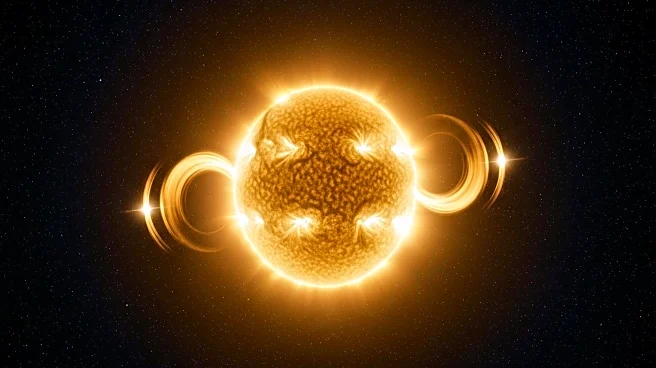What is the story about?
What's Happening?
Researchers at the University of St Andrews have discovered that particles in solar flares are significantly hotter than previously thought, solving a longstanding mystery about the Sun. Solar flares are intense energy releases in the Sun's atmosphere, heating it to over 10 million degrees. The study found that ions in solar flares can reach temperatures exceeding 60 million degrees, much hotter than electrons. This discovery challenges the historical assumption that ions and electrons have the same temperature in solar flares, providing new insights into solar physics.
Why It's Important?
Understanding solar flares is crucial for predicting their impact on Earth, as they can affect spacecraft, astronauts, and the planet's upper atmosphere. The discovery of super-hot ions in solar flares could lead to improved models for predicting solar activity and mitigating its effects on technology and communication systems. This research also contributes to the broader field of astrophysics by offering a new explanation for the width of flare spectral lines, which has puzzled scientists for decades. The findings may influence future studies on solar phenomena and space weather forecasting.
What's Next?
The research opens new avenues for exploring the dynamics of solar flares and their impact on space weather. Scientists may conduct further studies to validate the findings and integrate them into existing solar models. The discovery could lead to advancements in solar observation technologies and methods for predicting solar activity. Collaboration between solar physicists and other fields, such as space weather forecasting, may increase to develop comprehensive strategies for managing the effects of solar flares on Earth.
Beyond the Headlines
The study highlights the importance of interdisciplinary research in solving complex scientific mysteries. The connection between solar physics and other fields, such as magnetic reconnection, underscores the need for collaborative approaches to understanding natural phenomena. The findings may inspire new research into the fundamental processes governing solar activity and their implications for space exploration and technology. Ethical considerations regarding the use of solar data and its impact on global communication systems may also arise.















